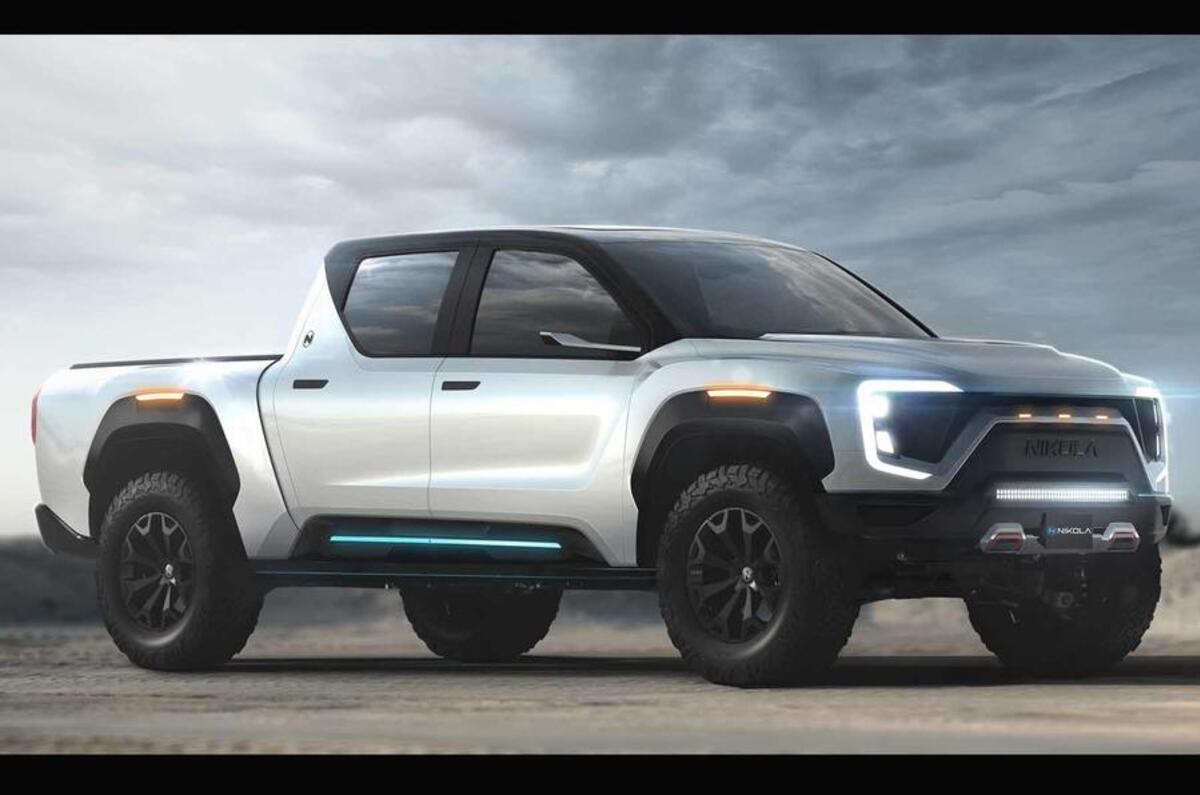General Motors (GM) has entered into a partnership with EV start-up Nikola to build the battery-electric and hydrogen fuel cell versions of the Badger pick-up truck.
As part of an agreement through which GM will receive a $2 billion (£1.53bn) equity stake in Nikola, the 2022 Badger EV will use GM’s Utium battery system and Hydrotec fuel cell technology.
In exchange for giving GM 11% ownership, Arizona-based Nikola also gains access to the American company's parts and components.
While GM will manufacture the Badger, Nikola remains responsible for sales and marketing and will sell the truck - as well as its upcoming One, Two, Tre and NZT models - under its own name.
The Badger, due for a full unveiling in December, is claimed to generate up to 894bhp and 980lb ft of torque, allowing it to sprint from 0-60mph in 2.9sec. Nikola claims it has a towing capacity of more than 3600kg.
It's expected to serve as a direct rival to the Tesla Cybertruck and the Rivian R1T but is unlikely to be sold outside of its US home market.
Nikola founder and chairman Trevor Milton said: “Nikola immediately gets decades of supplier and manufacturing knowledge, validated and tested production-ready EV propulsion, world-class engineering and investor confidence. Most importantly, General Motors has a vested interest to see Nikola succeed.”
GM chairman and CEO Mary Barra said: “We're growing our presence in multiple high-volume EV segments while building scale to lower battery and fuel cell costs and increase profitability.”
The agreement with Nikola is expected to bring several benefits for GM. As well as earning it an expected $4bn (£3.1bn) through the equity value of its shares, manufacturing the Badger and supplying batteries and fuel cells to Nikola, it will extend the company's fuel cell technology to the pick-up market.
The tie-up is expected to save Nikola more than $5bn (£3.8bn) over the next 10 years in battery, powertrain, engineering and validation costs, plus afford cost reductions in the production of the One, Two, Tre and NZT.
This partnership isn't the only fuel cell agreement that GM is engaged in. Since 2013, the company has been working to commercialise its technology with Honda. Both firms invested $85 million (£65.2m) to develop advanced hydrogen fuel cell powertrains for use in their future models in 2017.





Join the debate
Add your comment
mother trucker
I don't really care about the financial, Tesla have proven that you can lose money and still be hugely over-valued.
However, i'm fascinated to see these trucks go EV. This along with Rivian look interesting. Cybertruck was a shouty unpleasant thing, but all can only do good by shaking up the ancient pick-up market in the US.
GM isn't giving Nikola a dime
shiakas wrote:
As per my second post. What GM are giving them is batteries, chassis, fuel cell tech and a factory to assemble those components. All worth considerably more than 1.5bn pound I suspect, may work out but it sounds like a pyramid scheme to me
I am making a good salary